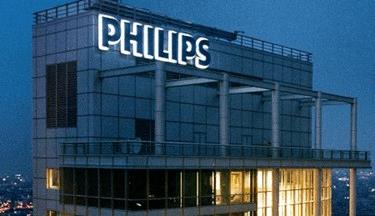Philips Launches Healthcare Informatics Service, Gets FDA Nod For Patient-Monitoring Device

Philips aims to meet the needs of growing economic uncertainty and rapidly advancing digital health market with a high-performance, scalable health informatics platform featuring an end-to-end managed service and risk-sharing pay-per-use model, according to senior executives. Philips also has received FDA clearance for a remote-monitoring wearable solution that detects early signs of deterioration in hospitalized patients.
A recent report from Berg Insight estimated that use of interconnected devices increased 44 percent to over seven million patients in 2016, and technology is continually advancing to meet provider demand for preventative care over acute intervention. Care delivery platforms represent the fastest-developing segments of the mHealth technology value chain, and Philips CEO Franz van Houten has stated that the “personalization of healthcare” is a strategy his company intends to follow long-term.
Over the past two years, Philips has signed several large, long-term partnerships to leverage the company’s solution capabilities with specialists in informatics and providers who will pilot Philips’ digital health solutions. In 2015, Philips inked a deal with Amazon Web Services to develop solutions for data management. Recent deals with Masimo and Expert Group seek to combine medical data with advanced informatics capabilities.
Philips now is prepared to launch the IntelliSpace Enterprise Edition, the industry’s first hospital-wide informatics platform with a risk-sharing managed service agreement and scalable pay-for-use model, allowing it to serve a range of hospital and health network budgets and IT needs. Philips plans to debut the system at the 2017 Health Information and Management Systems Society (HIMSS) Convention in Orlando this month.
The IntelliSpace Enterprise Edition offers providers a single sign-on and integrated workflows with cross-industry connectivity standards that ensure interoperability. An expansive suite of applications includes administrative tools for data management and clinical tools for radiology, cardiology, and oncology. A cardiovascular app integrates imaging from multiple modalities into a single workspace, and Philips DoseWise monitors radiation levels for both staff and patients.
“Managing disparate informatics platforms has never been more challenging, especially now when technology is advancing so rapidly and organizations are consolidating,” said Yair Briman, CEO of Healthcare Informatics at Philips, in a press release. “Additionally, economic uncertainty is constraining capital budgets at a time when integrated IT investments are needed to advance the transition to connected, value-based care.”
The platform and integrated end-to-end managed services agreement allows providers to share the risk with a single-contract, 24/7 support line and customer success manager. With the pay-for-use model, the solution can scale month-to-month to meet the needs of each network and the provider only pays for what they use. According to Philips, the platform will be rolled out in North America first.
Also debuting at the HIMSS conference is Philips’ IntelliVue Guardian Solution, which pairs predictive trend analytics with Philips wearable biosensor introduced last year. The solution monitors heart rate, respiratory rate, posture, and falls to process early alerts to patient’s deterioration in hospitals. According to a Philips press release, subtle changes in vital signs — especially respiratory rates — can signal an acute event six to eight hours before it occurs.
This solution received CE mark approval last October and will be available in the U.S. in early 2017.
